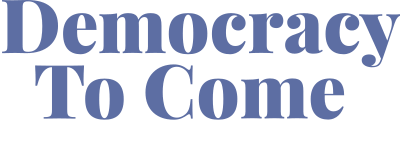A large part of my role at Sheffield University is teaching organizational behaviour to undergraduate students. I lead a module of around 350 2nd year undergrads on a range of topics from organizational culture to democracy in organizations. The running theme throughout the 10-week module is social responsibility in organizations, so we attempt to shine a light on organizations’ struggles to take in to account the needs of their employees, the environment and wider society. The lectures are two hours in duration (so quite long for an undergraduate audience) and as interesting as I find organizational behaviour the concepts (models and theories) can appear quite dry. One way I try to bring these concepts to life throughout my teaching is via the use of film and TV to show concepts in action within examples of work on the big and small screen. This largely came about through my related research into the portrayal of work and management in TV and film (as seen on the blog here and here). Below I have embedded a few examples of my attempts to do this within my teaching.
The first video is one I put together for teaching Terrence Deal and Allan Kennedy’s concept of “corporate cultures” from their book “Corporate Cultures”. It provides examples of their four categories of organizational culture: i) work hard, play hard culture; ii) process culture; iii) tough guy, macho culture and iv) bet your company culture. It uses films such as Paul Thomas Anderson’s 2007 masterpiece “There will be blood” to show a bet your company culture found within the oil drilling industry and the BBCs recent 2023 TV drama “Boiling Point” to show a “work hard, play hard” culture so often located in the restaurant industry.
The second video covers Charles Handy’s organizational “cultural categories” from his book “Gods of Management” including: i) power culture (Zeus); ii) role culture (Apollo); iii) task culture (Athena); iv) personal or cluster culture (Dionysius). For this one I used some really fun clips including one from Martin Scorsese’s “The Wolf of Wall Street” to show the competitive, power hungry culture involved in what Handy refers to as a Zeus culture.
The third video explores Steven Lukes’ dimensions of power from his book “Power: A radical view,” in which he covers four dimensions: i) behavioural power; ii) political power; iii) structural power; iv) relative power. In this video I use films such as David Mamet’s 1992 film “Glengarry Glen Ross“, as a perfect example of behavioural power in action.
Overall, I hope these kinds of videos help to bring different organizational behaviour concepts to life for students. Evidence shows that this emerging generation learn through visual means more than any generation before, so my intention is that these montages help to break up longer spoken lectures with something a little bit different. Whether they achieve this or not is something I am still trying to understand (students are notoriously difficult to read!), so I thought posting them on the blog and welcoming feedback would be a good first step in doing that. Finally, if anybody does find them useful, please feel free to use them in your own teaching to help students understand these ideas further.





